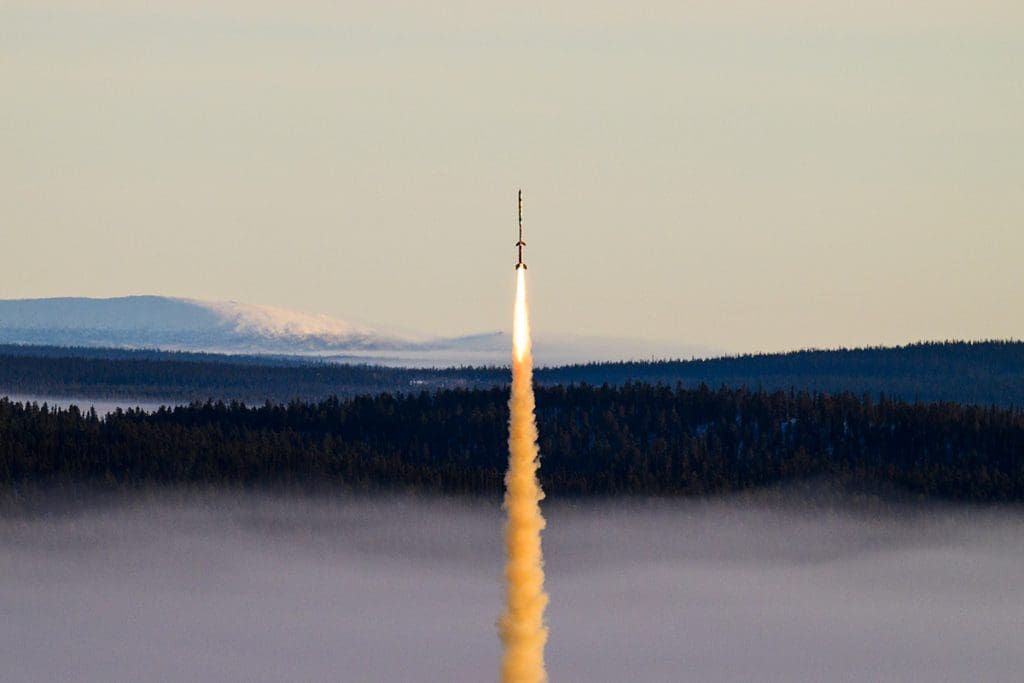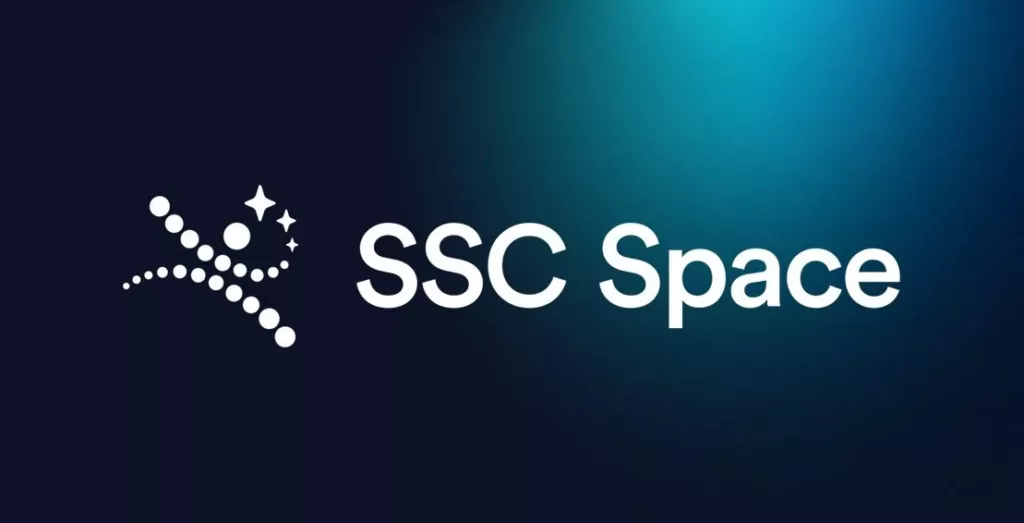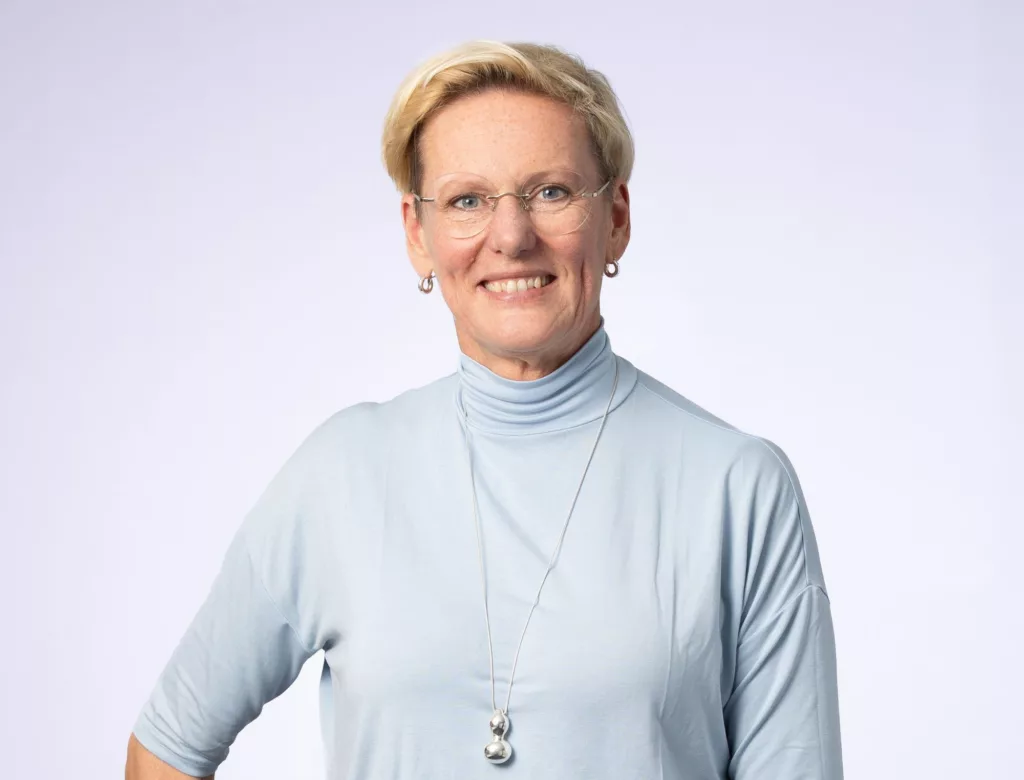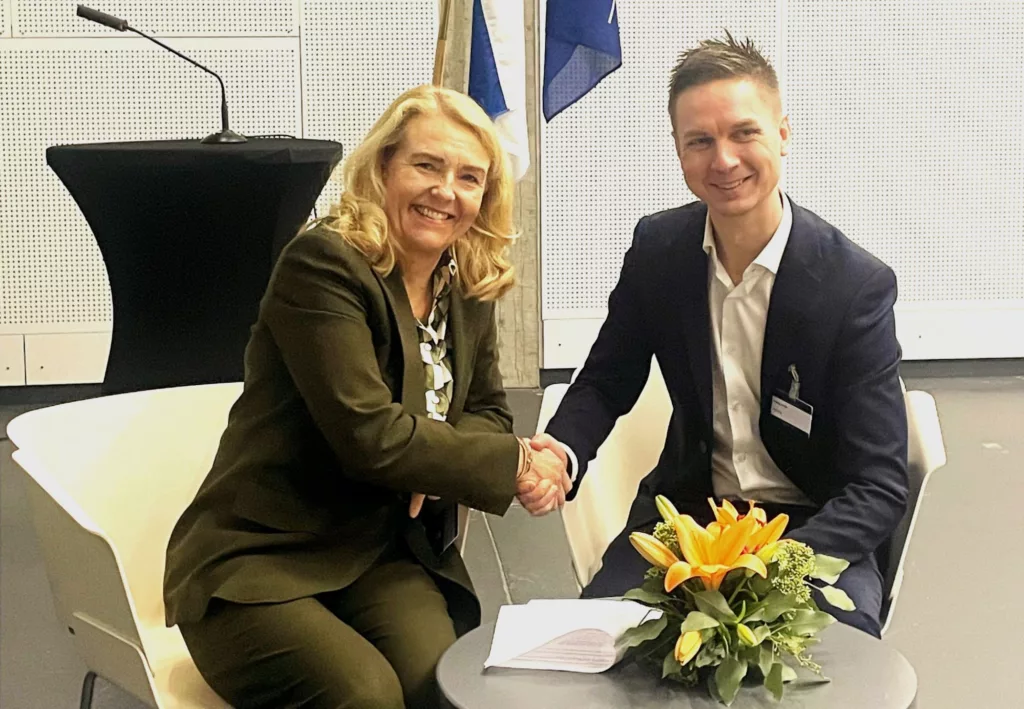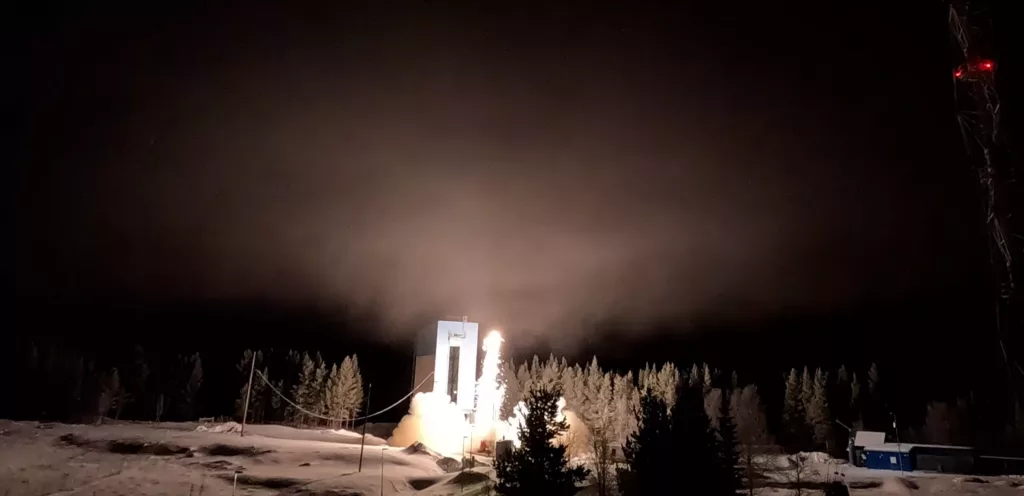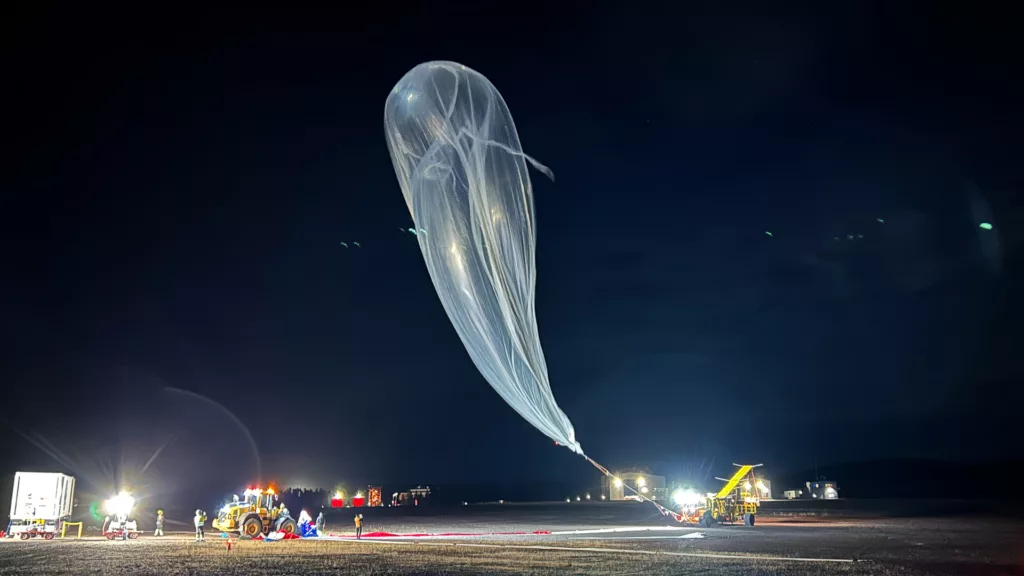On the 27th of February at 07.27 UTC the MAPHEUS 14 sounding rocket was successfully launched from Esrange Space Center in Kiruna. This was also the first voyage with the brand new Red Kite rocket motor which indicates a start of a new era for European sounding rockets.
The rocket is operated by the German Aerospace Center (DLR) and reached an apogee of 265 km, where the scientific experiments onboard were conducted under microgravity conditions. The launch was successful, and the payload could be recovered in perfect conditions within an hour after liftoff.
Among the experiments were advanced material science and biological science on both human and animal cells, to find out how the brain and the central nervous system is affected by microgravity.
“I am very happy with the campaign and the launch of MAPHEUS 14. The scientists have put a lot of effort into being ready for launch today as we had perfect settings and launch conditions that we did not want to miss out on. Our SSC team and DLR has together supported this seamlessly. It is always a pleasure to work together with DLR and this time on a completely new rocket motor combination. A big thank you to all involved” says Elin Lundqvist, campaign manager at SSC.
Maiden launch for Red Kite motor
MAPHEUS 14 was also the first sounding rocket from Esrange using the newly developed German rocket motor Red Kite. The new motor, which was tested at Esrange last summer is a collaboration between DLR and Bayern-Chemie. The second stage of the rocket used an Improved Malemute, manufactured by Bayern-Chemie.
The fact that a European rocket motor is now available indicates many benefits for both SSC and our customers. Transport to the launch site and availability among others, are significantly improved when the motors are manufactured within the EU.
”The Red Kite motor is a good example of cooperation between industry and research. Now we have our own motor, a second source that was designed according to our flight profile. It fits perfectly for the demands we have. That is really an advantage now” says Dr. Prof. Felix Huber, Director Space Operations and Astronaut Training at the German Aerospace Center.
Swedish-German collaboration in shared module
SSC had a Shared Module onboard the MAPHEUS rocket which housed seven different scientific and technical experiments from Australia, Sweden and Germany. The Shared Module provides access to professional sounding rocket missions with microgravity environment within the SubOrbital Express program.
“I want to thank our partners in the DLR MAPHEUS team for great collaboration as well as all the scientists that I know have been working very hard with the payload. A big thank you also to the researchers who have worked on the experiments in our Shared Module” says Stefan Krämer, project manager Shared Module at SSC.
